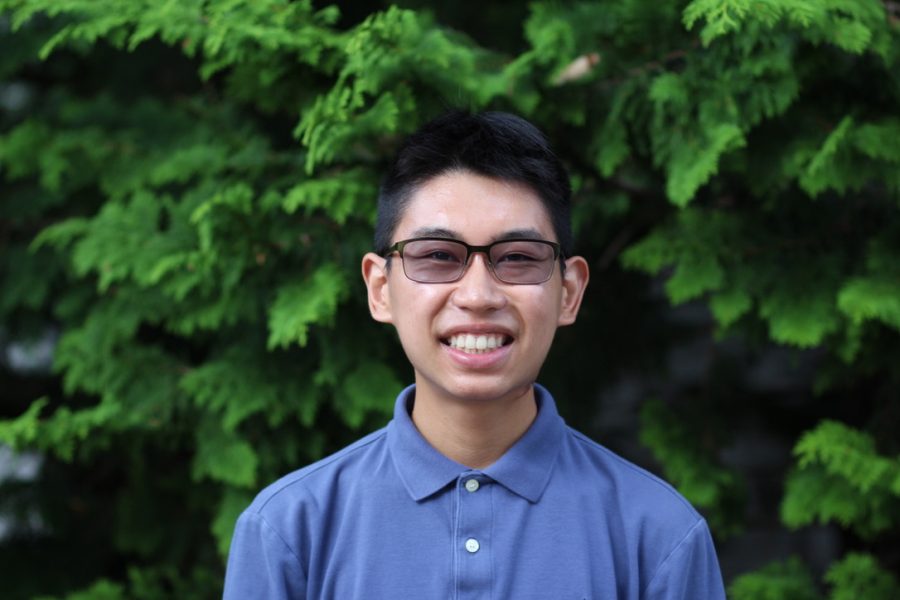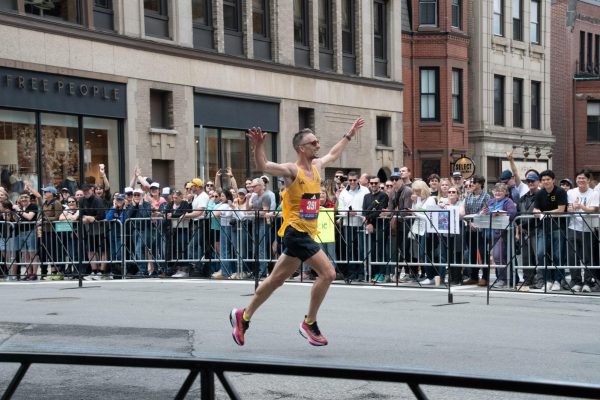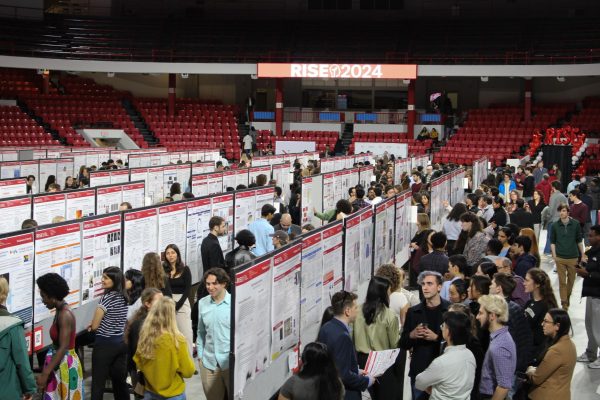Op-ed: Don’t be ashamed of needing some “me time”
November 1, 2022
One of students’ many initial quests at the beginning of a new school year, especially for first-years, is to find friends. Whether it be for ensuring you are acquainted with a math genius who can help you get through hours of Calculus 3 or someone to go with on a boba run to Gong Cha every Saturday, the college experience, or any experience in our emerging adult lives, is more interesting with people around you. I love hanging out with friends when I can, especially ones from high school to whom I have not said a word for a few months. However, as much as I love being with my companions from time to time, the thought of going out with people every weekend sounds daunting to me. I digress that I am naturally a more introverted person but I truly believe that there is value in spending time for oneself.
I find that, especially as I’m finding my second year of college a little more overwhelming than expected, taking time away from others allows me to recharge and restabilize my mental health. According to an article by Walden University, a private online for-profit institution based in Minneapolis, dedicating time to recharge alone helps clinical mental health counselors stay mentally nourished. Consequently, counselors who invest in themselves have personal experience in self-care that can aid their clients to also realize the significance of proper self-care. According to the National Institutes of Health, having time for oneself can offer better sleep quality. As college students, I feel like there is a compulsion to do so many things at once that we forget to take a step back and allow ourselves to breathe. Getting enough rest can help prepare us for overbearing tasks in the long haul, so rather than partying until 2 a.m., consider spending time alone to rest. According to Forbes, time alone enables a boost in creativity.
Our minds wander a lot when we are alone. For me, I find that running in solitude and showering allows me to mentally declutter the chaos in my mind, allowing more space in my brain for new and refreshing ideas. Time alone helps people focus on the process of how to best spend their time to achieve a fulfilling life. Spending time with others is wonderful, but it takes time away from one’s personal goals. And, surprisingly, engaging in self-care can actually help boost one’s relationships. Not setting personal social boundaries when you would benefit from them can build unintended distaste toward those you spend time with. I think that this quality of self-care is why I feel that my high school friendships are richer than my college ones: the time I’ve spent away from my high school peers gives me time to flush away any tension before greeting them again with a smile on my face.
According to an article by PsychReel, a company with individuals who are experts in personality psychology, society favors extroverts. But there is nothing wrong with being an introvert. Jenn Granneman, the founder of her website Introvert, Dear, which is dedicated to nourishing the introvert community, says the creativity that comes with introverts spending time alone has led many introverts to become successful with amazing accomplishments: Rosa Parks, Frederic Chopin, Albert Einstein and even Mahatma Gandhi. While I don’t have many friends compared to some extroverts, I do have a good amount of deep relationships that help me tackle life’s challenges with more confidence. Introverts like me tend to engage in a conversation through listening rather than speaking. Yet, the extent to which we allow others to use their voice when they need to may be why some introverts have deeper relationships.
There is nothing wrong with establishing connections and forming friendships. According to Psychology Today, friendships enable us to share splendid moments in our lives with others, making those moments more meaningful. Some of us are fortunate to have friends who are always there to help when we require mental support. However, surrounding ourselves with people all the time can spark some insecurities, especially at Northeastern. Hearing about one’s peers getting amazing co-ops, enriching experiences in a lab, marvelous summer internships and accomplishing other amazing feats can make someone feel proud of their friends and, justifyingly, insecure about oneself. But self-care can help alleviate that self-doubt. True self-care, according to Mental Health America, involves the ability to stop the comparison of oneself with others in order to accept one’s life as it is instead.
A lot of my friends ask why I don’t go out often with others. The truth is, I love my friends as much as I love spending time alone. I fear that people may mistake me as cold since I choose not to devote much time to being around others. However, when I do see my friends, I savor every second I can with them as much as I savor time for myself to recharge. I have felt recharged walking down the streets of London alone for a month, spending three pleasing hours observing art at my own pace at the Museum of Fine Arts and hogging the shower a little longer than necessary at the end of a stressful week. The time I have allotted for myself has been an integral part of my college experience.
As Northeastern students, we should be accepting of those who yearn to establish boundaries for themselves. Don’t judge a person if they don’t feel like partying for a night; there may be a day when you find yourself in that person’s position. If you find yourself needing to spend time in solace, know that your truest friends would not mind it. It may be a little stress-inducing to think about the consequences that taking time alone could have on your relationships. However, time alone is more likely to strengthen than harm your friendships. I think that even the most extroverted student should spend at least a few minutes in their daily lives removing themselves from others and re-evaluating their lives. Our relationships with ourselves are just as imperative as those with our friends.
Jethro R. Lee is a second-year data science and psychology combined major. He can be reached at [email protected].


















